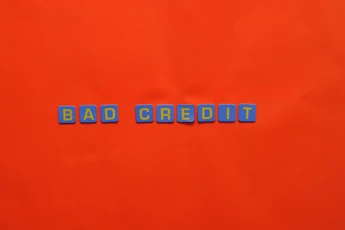 Written by: Danny Belton - Head of Lending
Written by: Danny Belton - Head of Lending
These court orders, issued for unpaid debts, leave a mark on your credit history, potentially delaying your homeownership dreams. Understanding how CCJs affect your mortgage journey is crucial, whether you're actively planning to buy or simply curious about their potential impact.
How CCJs affect your borrowing power
CCJs deal a direct blow to your credit score and lenders rely heavily on these scores to assess your ability to repay debt, and CCJs act as red flags, significantly lowering your score.
The impact depends on several factors:
Age of the CCJ
Fresh wounds are more concerning than scars. As time passes and you prove more responsible financial behaviour, the CCJ's weight slowly lessens
Quantity
A single, settled CCJ might be manageable, but multiple CCJs paint a picture of repeated financial mismanagement, raising concerns about future repayment potential
CCJ amount
The size of the outstanding debt matters. A hefty, unpaid CCJ indicates a larger burden and could raise doubts about affordability
Steps to overcoming CCJs
While CCJs can create challenges, securing a mortgage isn't impossible. Here are some strategies to help you navigate the landscape:
- Settle the outstanding debt as soon as possible. A "satisfied" CCJ carries less weight than an active one
- A larger deposit reduces the loan amount needed, making you a more attractive borrower, despite the CCJ. Aim for a deposit that goes beyond the minimum requirement
- While the CCJ remains on your report for six years, focus on building a positive credit history elsewhere. Pay bills on time, manage existing credit responsibly, and consider speaking to a financial adviser to accelerate the improvement
- Mortgage advisers specialising in non-standard cases can guide you through the complexities and connect you with lenders who may be more understanding of your situation. Their expertise can prove invaluable
Building trust with lenders
Remember, honesty is essential. Be upfront about the CCJ with potential lenders and explain the circumstances surrounding it. Demonstrating responsible financial behaviour since the CCJ can go a long way in rebuilding trust and reducing its impact.
While CCJs can create roadblocks, with positive steps, informed planning, and a commitment to financial responsibility, you can still reach your homeownership goals. Don't let a past error define your future financial journey. Remember, the path to homeownership is open to you, even with a CCJ in your history - it just may add more steps.
Important information
Your home may be repossessed if you do not keep up repayments on your mortgage.
There may be a fee for mortgage advice. The actual amount you pay will depend on your circumstances. The fee is up to 1% but a typical fee is 0.3% of the amount borrowed.
Related Articles
The side effects of bad credit
In today's world, credit is a key that unlocks doors to bigger purchases, emergency assistance, and a brighter financial future. What happens if that key is rusty and doesn't work as smoothly? That's when the side effects of bad credit can come knocking.
< 30 views | 1 year ago
Should you use savings to pay off debt
Managing finances wisely is a key aspect of achieving financial stability and freedom. However, one common dilemma you may face is whether to use your savings to pay off existing debts.
< 90 views | 1 year ago
Can I get a mortgage despite my debts?
Even if you have debt, you can still increase your chances of getting a mortgage by building your credit score up.
1970 views | 4 months ago
No posts currently available




